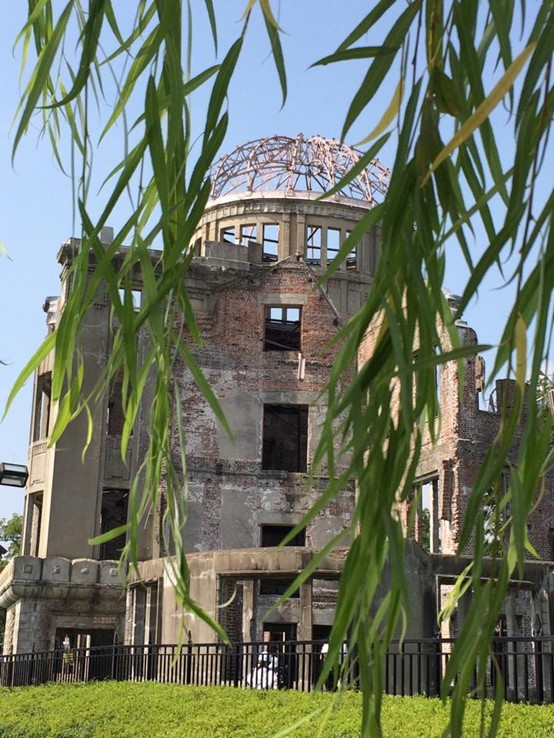Hsinya Huang and Syaman Rapongan,
After Hiroshima: Ecological Debt in Albert Wendt’s Black Rainbow and Syaman Rapongan’s Drifting Dreams on the Ocean
On August 6, 1945, the U.S. B-29 bomber dropped the world’s first deployed atomic bomb over Hiroshima, immediately wiping out 90 percent of the city and killing 80,000 civilians with tens of thousands more later dying of radiation exposure. Three days later, a second bomb murdered 40,000 people in Nagasaki. As Japan’s Emperor announced unconditional surrender which ended World War II, he cited the devastating power of “a new and most cruel bomb.” Reading Albert Wendt's Black Rainbow (1992) and Syaman Rapongan’s Drifting Dreams on the Ocean (2014), we examine radiation ecologies and nuclear colonialism after Hiroshima bombing in the trans-Pacific, trans-Indigenous context. We argue that the U.S. militarism creates an ecological debt to Indigenous islanders, who experience a nuclear Pacific as everyday presence and process. Both writers testify nuclear militarism not as fixated on Hiroshima or Nagasaki but rather as a global and ongoing presence across the Pacific region, which remains in the oceanic body and in the risk of continued ecological degradation. Both writers reflect on the debt-death link through the act of mourning and writing. This project investigates the Indigenous subject position in conjunction with the violent history of the nuclear Pacific, probing into the ways in which Indigenous Pacific writers bear testimony to radiation ecologies in the Pacific. How to come to terms with the many deaths of radiative victims by reckoning the colonial/imperial debt to global environment? How do voices from the edge of the sea inspire the civil society groups to organize a movement that would counteract nuclear/radiative colonialism? By invoking Indigenous narratives, cultural practices, and forms of collective dissent, this project concludes with ecological opportunity for a world which is more justly constructed, charting the trajectory of the Indigenous subject that refuses to be subordinated to powers of nuclear/radiative colonialism.



